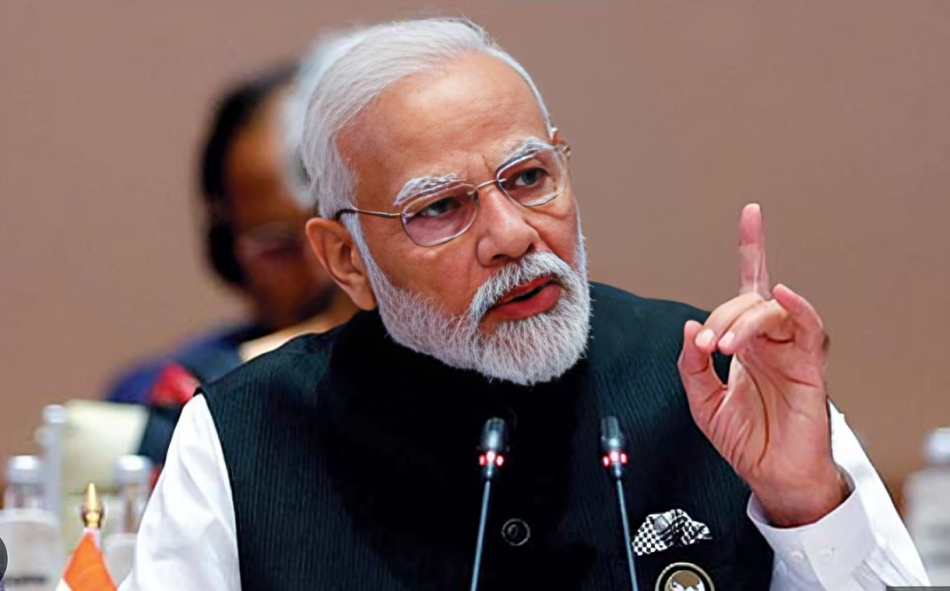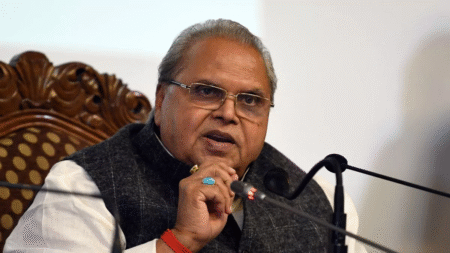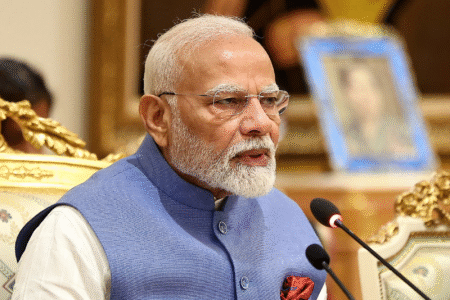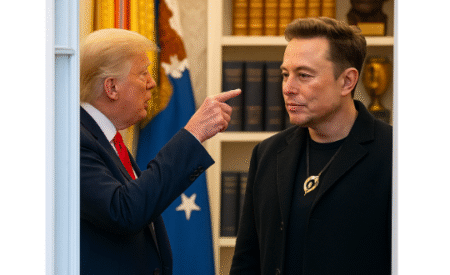The “One Nation, One poll” (ONOP) proposal, approved by Prime Minister Narendra Modi’s Cabinet, has the potential to alter India’s election. This decision represents a major stride towards aligning Lok Sabha and state assembly elections, aiming to simplify the electoral process, lower expenses, and minimize hurdles in the largest democracy in the world.

But what does this really mean for India? Will it enhance democratic participation or raise concerns about federalism and constitutional integrity? Let’s dive into the intricacies of One Nation, One Election, explore the reactions from various political factions, and assess the future of this potentially transformative proposal.
What Is ONOP?
The “One Nation, One Election” concept of holding simultaneous elections for the Lok Sabha and all state assemblies. This would mean reducing time and expences of elections, which are currently held at various intervals across the country. By synchronizing them, the government argues that the country can save massive amounts of money, resources, and time that go into frequent elections.
The idea of simultaneous elections is not new. In fact, India conducted Lok Sabha and state assembly elections together in the early years of independence, in 1951, 1957, 1962, and 1967. However, this was disrupted due to early dissolutions of both Lok Sabha and state assemblies, throwing the election schedule off balance. The “One Nation, One Election” initiative seeks to bring back that synchronized electoral system.
Also Read : Trump Labels India a ‘Very Big Abuser’ of US Trade Ties, Vows Reciprocal Tariffs
The Cabinet’s Decision: A Major Milestone
In a landmark move, PM Modi’s Cabinet gave the green light to the One Nation, One Election proposal on a recent Wednesday. This decision followed the submission of a report by a high-level committee, led by former President Ram Nath Kovind. The panel had been tasked with exploring the feasibility of simultaneous elections and after thorough discussions, it recommended proceeding with the ONOP framework.
PM Modi’s Vision for ONOP
During his Independence Day speech, PM Modi championed the idea, stressing that frequent elections create obstacles for governance and development. He argued that constant election cycles disrupt governance as ministers and officials remain focused on electioneering instead of governance.
But what lies beneath this proposal? Let’s take a closer look.
What are Benefits of ONOP
- Cost Efficiency: Holding elections simultaneously will significantly reduce the financial burden on the state. Frequent elections result in repeated expenditures for poll booths, security arrangements, and staff salaries.
- Reduction of Logistical Challenges: Conducting separate elections for Lok Sabha and state assemblies requires massive logistical arrangements. Simultaneous elections streamline these processes.
- Government Focus: With elections constantly looming, the government can be distracted from long-term governance. One Nation, One Election would give administrations a five-year election-free stretch to focus solely on governance.
- Voter Fatigue: Voters currently participate in multiple elections in short spans. ONOP can potentially lead to higher voter turnout by reducing voter fatigue.
The Political Pushback: Opposition Reactions
As with any major political reform, One Nation, One Election has generated fierce debates across the political parties. The ruling Bharatiya Janata Party (BJP) is pushing for it, but opposition parties remain divided.
देश की जनता को “One Nation, One Election” के ख़िलाफ़ क्यों आवाज़ उठानी चाहिए?@ArvindKejriwal जी को ध्यान से सुनिए👇 pic.twitter.com/EY60KLhpLY
— AAP (@AamAadmiParty) September 18, 2024
Congress leader Mallikarjun Kharge has Said in opposse, that “One Nation, One Election cannot work in a democracy.” He argued that elections need to happen as and when required to ensure democratic accountability. TMC, SP and other opposition parties have Also voiced their concerns, suggesting that ONOP may undermine federalism and diminish the diversity of India’s democratic process.
Criticism of ONOP: Federalism Under Threat?
One of the main critiques of One Nation, One Election revolves around the erosion of federalism. Critics argue that India is a union of states with different political, cultural, and economic contexts. Conducting simultaneous elections could undermine the autonomy of states, forcing them to conform to national electoral cycles.
Also Read : Tata Power Launches Biggest Solar Cell Production of 4.3 GW Plant at Tirunelveli
Furthermore, opposition leaders, such as Asaduddin Owaisi of the AIMIM, have voiced concerns that ONOP is a solution looking for a problem. They argue that simultaneous elections are not necessary to address the country’s governance challenges.
Government’s Response to Critics
In response to these criticisms, the government has emphasized the practical benefits of ONOP. Union Home Minister Amit Shah hailed the Cabinet’s decision as a reflection of PM Modi’s “iron will” to strengthen India’s democracy. According to Shah, One Nation, One Electionwill lead to cleaner, more efficient elections and ensure that resources are better allocated towards the country’s development.
How Will ONOP Be Implemented? A Step-by-Step Plan
ONOP’s implementation is no small feat. The government has proposed a two-phase approach:
- Phase One: This phase will focus on synchronizing Lok Sabha and state assembly elections. These elections will be held at the same time across the country.
- Phase Two: The second phase will see local body elections (municipalities and panchayats) being synchronized with general elections. The government also plans to introduce a common electoral roll for all elections to further streamline the process.
Impact on India’s Electoral Process
If One Nation, One Election becomes a reality, it could drastically change the way elections are conducted in India. Apart from the benefits of cost and logistics, it will also bring in a structured electoral calendar. Political parties would need to adapt their strategies, focusing on one massive election campaign every five years.
But could this consolidation of elections also make it harder for regional parties to maintain their distinct identity and influence? Some analysts argue that simultaneous elections might skew electoral results in favor of national parties, reducing the power of regional parties to influence state-level politics.
FAQs About One Nation, One Election
1. What is One Nation, One Election (ONOP)?
One Nation, One Election is a proposal to conduct simultaneous elections for the Lok Sabha and state legislative assemblies, reducing the frequency of elections across the country.
2. How will ONOP save costs?
By conducting elections at the same time, the government will save on repeated costs related to poll booths, staff, security, and logistics.
3. Does ONOP threaten federalism?
Critics argue that One Nation, One Election could undermine federalism by reducing the autonomy of states, as they would no longer have the flexibility to hold elections based on their unique political climates.
4. When will the ONOP bill be introduced?
The government aims to build consensus before introducing the One Nation, One Election bill, possibly in the winter session of Parliament.
5. Has ONOP been implemented before?
Yes, India conducted simultaneous elections until 1967. However, the cycle was disrupted due to early dissolutions of both Lok Sabha and state assemblies.
6. Will ONOP increase voter turnout?
One Nation, One Election could reduce voter fatigue, leading to higher turnout as citizens would be voting in fewer elections overall.
Conclusion: The Road Ahead for ONOP
The “One Nation, One Election” proposal has sparked intense debates across the political spectrum. While it promises efficiency, cost savings, and a streamlined electoral process, concerns about federalism and democratic representation remain unresolved. As the government seeks consensus before moving the bill, the future of One Nation, One Election will depend on how these issues are addressed.
Whether hailed as a revolutionary step or criticized as a threat to India’s democratic fabric, ONOP will undoubtedly shape India’s electoral landscape in the years to come.











